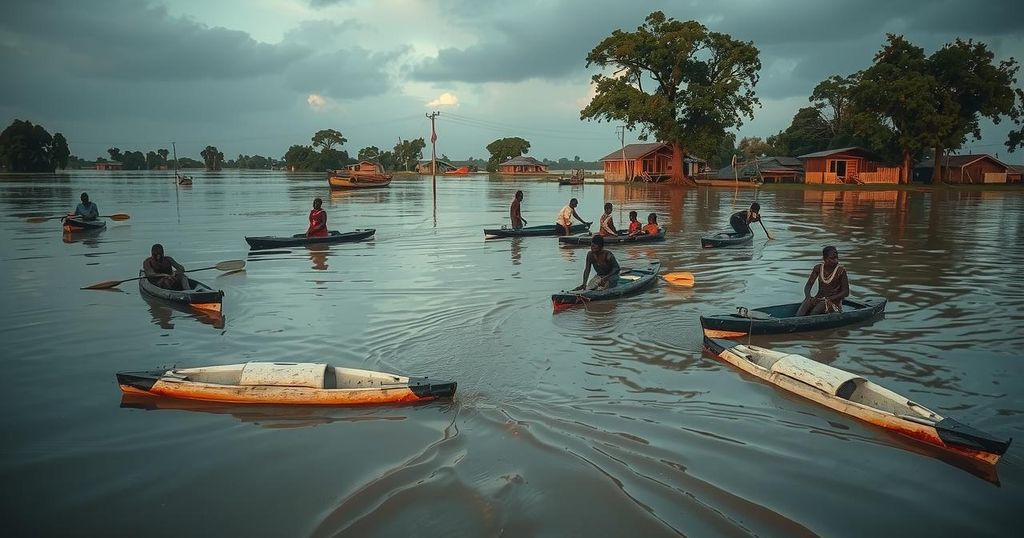South Sudan is experiencing severe flooding that has displaced over 300,000 people and affected around 1.4 million individuals. Jonglei and Northern Bahr el Ghazal are the hardest-hit areas, with a surge in malaria cases complicating recovery efforts. The floods have severely damaged homes, crops, and livestock, highlighting the ongoing consequences of climate change.
The ongoing floods in South Sudan have severely impacted approximately 1.4 million individuals, displacing over 300,000 as reported by the United Nations. The most adversely affected areas include Jonglei and Northern Bahr el Ghazal, which collectively account for more than 51% of the impacted population. Recent assessments also highlight a concerning rise in malaria cases, particularly in flood-impacted regions, thereby putting additional strain on the already overwhelmed health system. The floods, attributed to excessive rainfall and the overflow of the Nile River, have devastating effects on infrastructure, housing, agricultural assets, and livestock. Compounding the humanitarian crisis, climate change has exacerbated flood occurrences, with UNICEF reporting that annual floods typically affect between 750,000 and over a million individuals in South Sudan. The International Federation of Red Cross cites that since May 2024, South Sudan has witnessed significant flood events leading to displacement and health challenges for the population. Efforts to assess and respond to these challenges are ongoing as conditions continue to evolve, necessitating immediate humanitarian assistance.
The floods in South Sudan have become a recurring humanitarian crisis, exacerbated by the impacts of climate change. Heavy rains have caused widespread flooding in the country, leading to damage to infrastructure, homes, and vital agricultural areas. The International Organization for Migration (IOM) and other humanitarian agencies are actively involved in assessing the situation and providing relief. The rise in malaria cases in the wake of flooding significantly hampers the efforts of healthcare systems in the affected regions, necessitating immediate and comprehensive interventions.
In conclusion, the floods in South Sudan have resulted in a substantial humanitarian crisis affecting over 1.4 million people, with more than 300,000 displaced. The worsening health scenario characterized by a surge in malaria cases calls for urgent intervention and relief efforts. As the country grapples with the dual challenges of climate change and public health, the need for coordinated humanitarian response becomes even more critical. International agencies continue to monitor and address these challenges in South Sudan.
Original Source: www.aninews.in






